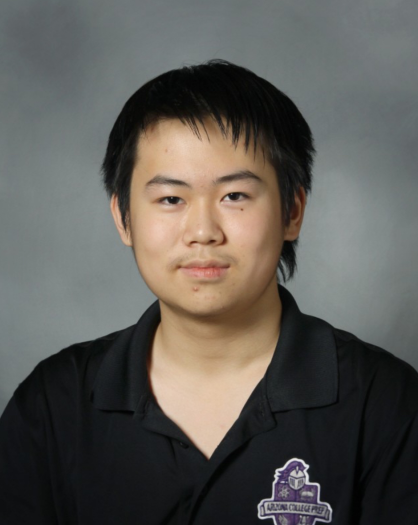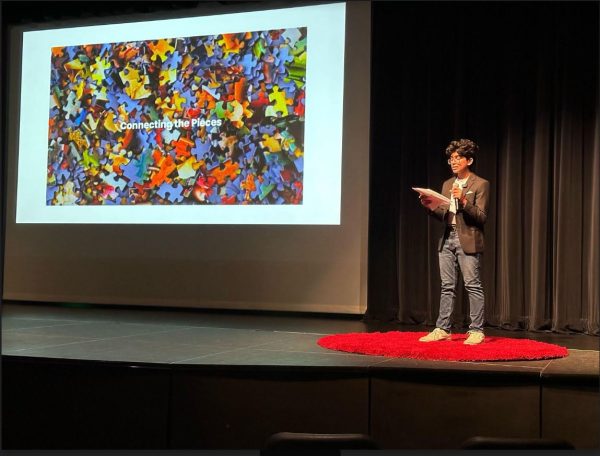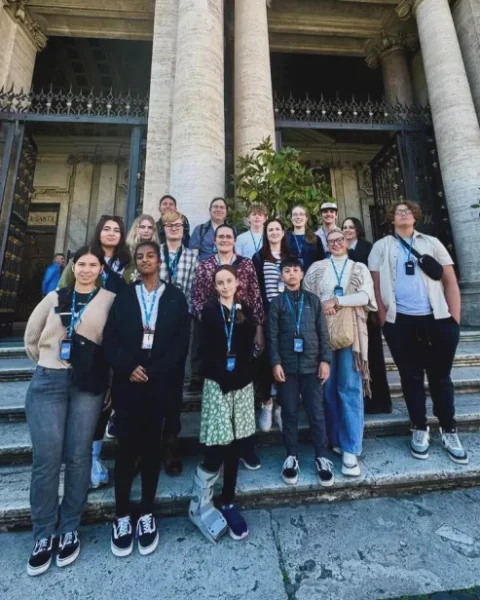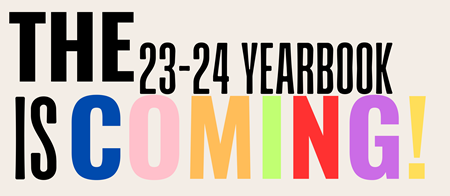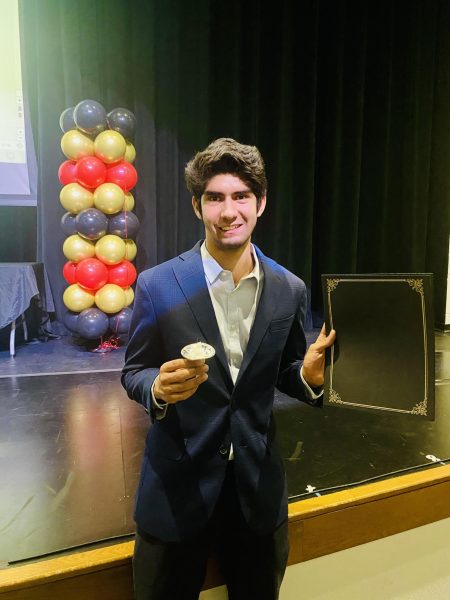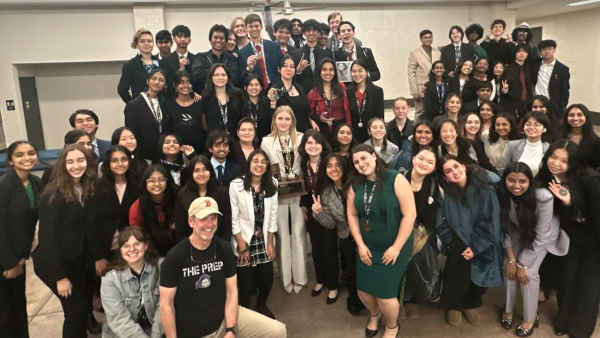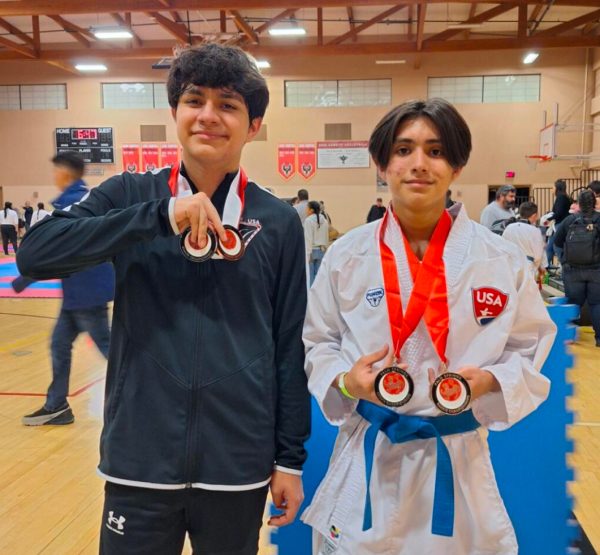ACP Alumnus Farah Eltohamy: Writing for Cronkite
Farah Eltohamy, who graduated from Erie in 2018, wrote an article on the 2020 census. Photo courtesy of Farah Eltohamy.
ACP alumnus Farah Eltohamy, who graduated from Erie in 2018 and currently attends ASU’s Walter Cronkite School of Journalism and Mass Communication, recently wrote an article on the 2020 census for Cronkite News that was picked up by the Los Angeles Times. Farah, who is majoring in Journalism and Mass Communication with a minor in Political Science, wrote the article in both English and Spanish.
The article covers the growing issue that Middle Easterners and North Africans face when filling out the 2020 census, which does not include a box for either ethnicity, but rather “White, including Middle Eastern”.
Once word got out that an ACP alumnus had written and published an article that was picked up by the LA Times, teachers who had the honor to teach Farah (along with students who knew her while she was still on campus) were beyond proud to hear of her major success and achievement.
I contacted Farah for an interview about the troubles she went through to write this article and the underlying motivation behind it. She, of course, happily agreed:
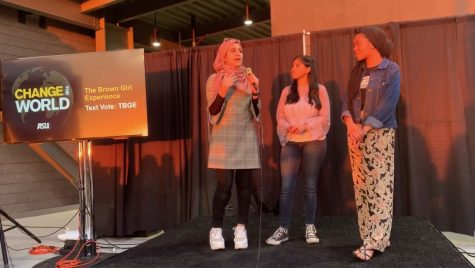
Q: What inspired you to write this article?
A: This past semester I signed up for a course at Cronkite called Advanced Bilingual Reporting. It’s taught by Fernanda Santos, the former Phoenix Bureau Chief of the New York Times, and also the coolest person I know! The class was really small; it was just me and two other students. The way the class works is that we have an overarching topic that Fernanda choses for the semester, and each student goes to work on their own different stories. Since the 2020 Census is coming up, Fernanda had the idea for us to explore citizenship and how different groups of people will be represented on the Census. The final result is a special project for Cronkite News produced in both English and Spanish. My classmate Kyle Dowd made a documentary style news package on a soccer team in Phoenix made up of Somali refugees, while my other classmate Chloe Jones worked on a really elaborate interactive of the steps to citizenship. Each step tells the story of different immigrants in Arizona and the obstacles they faced to obtain their citizenship. It comes out later this month and it’s super cool!
My story was inspired by a conversation I had with Fernanda before I took her class. We were talking about how so many racial/ethnic identities are still not recognized on government forms and how for so many people of color, we don’t know where we belong. I’m Egyptian, and on government forms the only options available for me are “white” or “other.” Both are inaccurate and have been the cause of hundreds of identity crises growing up. I even wrote a personal narrative on it! There was supposed to be a category for people from the Middle East and North Africa (MENA) on the 2020 Census to resolve this issue, but the proposal to do so was rejected by the Trump administration in 2018. Tackling this story was hard because the goal was to explain this issue from all angles. There’s the news aspect, personal stories, research and historical context all in one story. The story kept on getting bigger and bigger as my reporting delved deeper.
Q: How long did it take you to find all of the data and research you included in your article? Was it difficult? What were some obstacles you encountered while planning and writing this article?
A: To be honest — it took TONS of reporting. To spend a semester working on one single story says a lot! I talked to so many people for this story, many weren’t even included in the final piece. At one point I got frustrated because I felt like my story wasn’t going anywhere. There was one point where I made like, 20 phone calls to the U.S. Census Bureau, so I could get in contact with a higher up there. After I was told to file a media request and waited for a couple weeks, it was rejected. However, one thing led to another and I discovered new information about efforts pushing for a MENA category in Arizona and nationwide. It was a combination of on the scene reporting and digging through data and what not.
To answer the second question, yes, it was hard. Fortunately, Fernanda had my back. She could sense whenever I was overwhelmed, and always made sure to help me with that. She’s so amazing. We had one edit session where we sat in her office for three hours finalizing everything, and she worked on reframing all the information we had on a lawsuit as accurately as possible. It was a huge relief because I was very confused by all the legal jargon.
It was all very worth it at the end! I wanted to prove to myself that I’m capable of taking on a huge story. After it was published, the Spanish version was picked up by the Los Angeles Times!! I have a byline in legacy newspaper at 19 years old, which is so surreal.

Q: What were the easiest and hardest parts to putting this article together?
A: I don’t know if there was an “easy part.” Like I said, it was a lot of reporting gone into one story. I guess translating it to Spanish? Since I had already reported everything in English, the process went much smoother than I thought. The only problem was there were so many terms/phrases I didn’t know how to translate over to Spanish, but the people over at Cronkite Noticias did a great job helping us with that.
Q: Why did you choose Journalism & Mass Communication, along with Political Science?
A: I’m pursuing a career as a news reporter because I love the power of storytelling. Journalism is a field that has lasting impact — from holding the powerful accountable to influencing social policy — and I truly admire that. On the other hand, the problem with journalism is that the media industry has been historically dominated by the perspectives of white men, which has often brought a disconnect between reporters and the communities they cover. I know exactly how it feels to be under and misrepresented in the public eye, so my goal is, through my reporting, to make sure newsrooms become more inclusive spaces for people from marginalized communities to tell their stories and be listened to.
Q: What do you miss the most about ACP?
A: I would say I really miss my teachers. Throughout my four years at Erie, I had very supportive teachers who cared for me and really wanted to see me grow. I had some teachers who were truly incredible and changed my life. I’m no longer the timid person I used to be and I’ve become much more comfortable in my skin because of their support and guidance.
Q: Do you have any advice for our seniors about college?
A: Don’t worry. Seriously. High school is such a weird time because you’re still growing up and learning so much about yourself but there’s so much being thrown at you and it’s all so much at once. Anyone who remembers how I was in high school can tell you I was always super nervous. Super nervous about the future, getting into college, my grades, what to do for the rest of my life….etc. Although I still struggle with anxiety, I’ve slowly been learning how to let go of all that stress and tension because it’s not worth it. Everything always ends up okay in the end. And you’ll be okay too.
Thank you so much to Farah for taking the time to give us such a detailed and extraordinary interview. Congratulations on your sensational piece! Don’t forget; once a Knight, always a Knight!
To check out Farah’s article, click on the links below:
English version: https://cronkitenews.azpbs.org/2019/12/17/2020-census-mena-category/
Spanish version: https://www.latimes.com/espanol/eeuu/articulo/2019-12-17/censo-2020-la-falsa-promesa-de-mas-categorias-raciales


